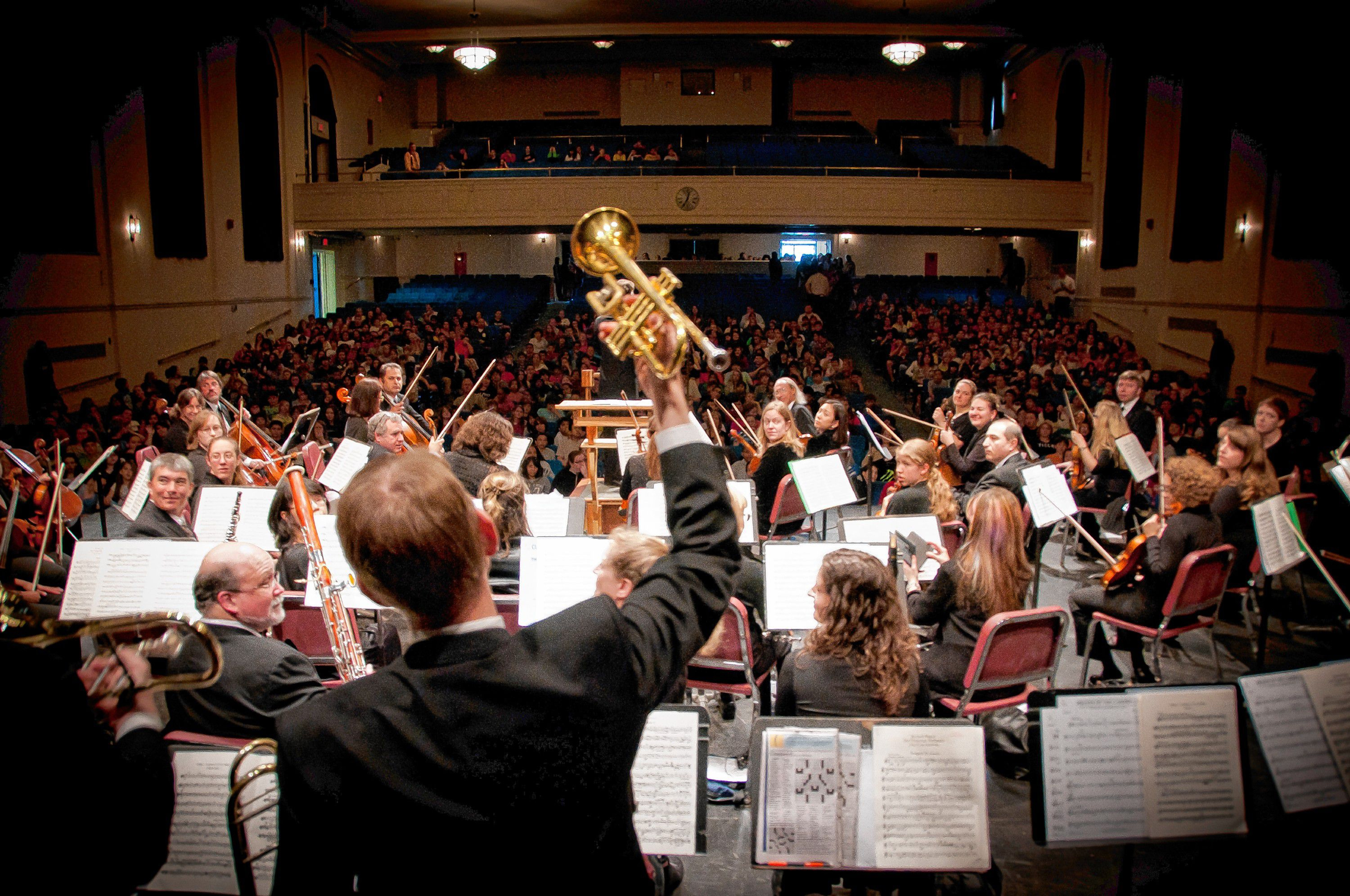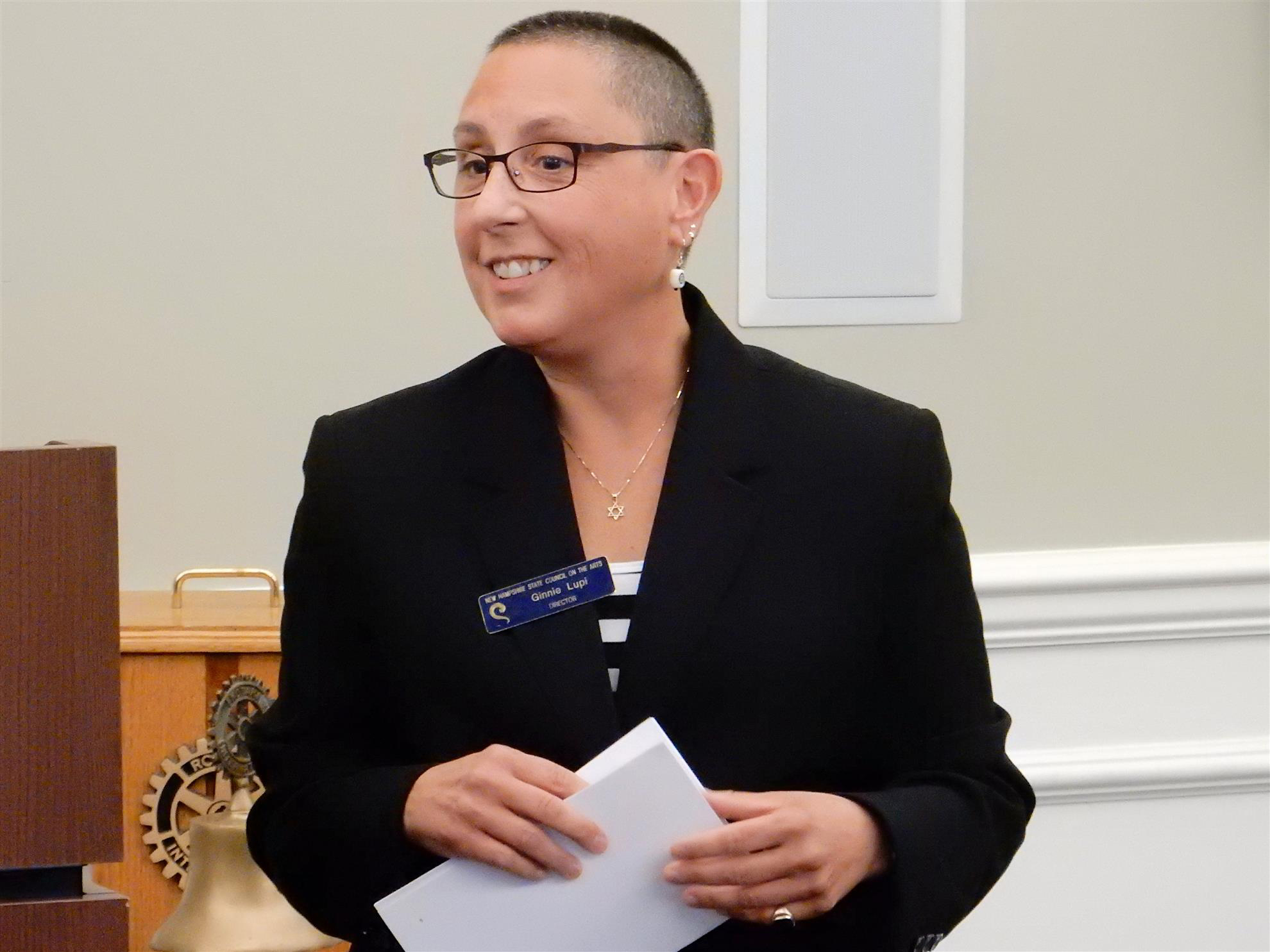
Symphony NH, still in recovery mode after the pandemic, celebrates its 100th anniversary this year.

With a new year comes a familiar challenge for the New Hampshire arts and performance community: continuing to rebound from the worst of the Covid pandemic crisis of 2020 and 2021 which financially crippled scores of organizations.
A Pandemic Impact Survey commissioned by the NH State Council on the Arts released in late 2022 shows the depth of the challenges across the state, especially in the performing arts sector as venues seek to return to 2019 revenue levels.
“The nonprofit arts sector is still feeling impact of ongoing pandemic and is also impacted by the current state of the economy,” said Ginnie Lupi, director of the State Council on the Arts. “They may be nonprofits, but they are still businesses just like any other; they are impacted by inflation and labor shortages.”
According to 2020 figures by the U.S. Bureau of Economic Analysis, arts and cultural production accounts for $2,899,154,000, 3.3 percent, of the New Hampshire economy, contributing 20,293 jobs. Not surprisingly, as the state’s domestic product dropped four percent from 2019 to 2020, it dropped almost 7 percent in the added value of arts and cultural productions.
Lupi said the genesis of the survey of 53 responding organizations grew from constant contact during the pandemic. “We’ve been surveying our constituency since April 2020, and several groups have been meeting to share best practices,” she said. But even as some organizations began to slowly emerge, “we were continually hearing these stories” of audience figures significantly down and shows being canceled because of Covid outbreaks among cast and crew.
Buoyed by a wide range of federal and state grants and funding in 2020-2022, along with an increase in private donations, many organizations were able to survive, but the surveyed organizations revealed that revenues in the performing arts sector took significant hits in 2020 and 2021 but began to rebound in 2022.
According to the report, the organizations reported $8,013,220 in revenues in 2019. In 2020, that amount plummeted to $2,555,109 (32 percent of the 2019 total) and fell even further in 2021 to $2,258,208 (31 percent of the 2019 total). In 2022, the organizations reported a rebound in revenues to $5,973,132.22, although that was still only 74 percent of the 2019 revenue total.
‘Not sustainable’
Elliot Cunningham was named managing director of the New London Barn Playhouse in 2020. From the first days of his tenure, Cunningham and executive artistic director Keith Coughlin have been confronted with an escalating set of financial challenges.
“In 2020, we, like many, many other organizations, were forced to cancel a summer season that had already been planned and mostly hired,” Cunningham said. “In 2021, we produced a summer season outside under a tent with a limited capacity and limited staff. This past summer, we returned indoors to the historic New London Barn Playhouse, but due to Covid-19 positive cases within the company we were forced to cancel 20 productions. This cancellation resulted in a loss of approximately $275,000. We were lucky enough to have funds in the bank from federal and state Covid relief funding, but we quickly emptied those reserves to cover the losses from our 2022 summer season.”
Added Coughlin: “The loss that we took this year (2022) is obviously not sustainable.”
In 2021 and 2022, canceled shows and productions were the rule and not the exception across the state. Courtney Perkins had a baptism under fire when she was named executive director of the Prescott Park Arts Festival in June 2020 as the season was canceled and staff worked creatively to figure out how to make the show go on (drive-in movies was one offering).
“In 2021, we had a shorter season with a smaller footprint,” Perkins said. Even then, rising shipping costs led to a “tightrope” of decision-making. There was a big step towards normalcy in 2022 as the popular Seacoast festival approached the 2019 production schedule. Yet, a Covid outbreak among the cast led to the cancellation of shows of the popular musical Footloose in August. “We probably had about 80 percent of earned revenue compared to 2019,” she said about 2022.
In addition to a wide range of government loans and grants, the Prescott Arts Festival was kept afloat by its donors and seasonal sponsorships that were retained by corporate and individual patrons, she said.
“We feel incredibly lucky. The community has been very generous. Without the significant amount of that gap support we simply would not have survived,” said Perkins.
One survey respondent noted that “as long as Covid remains manageable, we expect to operate as usual in the new normal ways.” Just what those “new normal ways” will constitute is yet another hurdle in economically recovering from the pandemic.
A reevaluation
Symphony NH in Nashua is celebrating its 100th anniversary in 2023, and executive director Deanna Hoying said every step since the spring of 2020 has seen one unforeseen challenge after another.
A new musical director was brought on for the 2019-20 season but half the season was canceled. There was an abbreviated livestream schedule for the 2020-21 season and then, due to a Covid surge, cancellation of performances in 2022. And before Covid, few could have imagined the difficulty of finding space for musicians to be able to rehearse and keep to safe, social-distancing protocols.
As with any small business, the seismic disruption of Covid has led to a reckoning for Symphony NH, according to Hoying.
“As we come out of the pandemic, it has given us an opportunity to reevaluate how we do business,” said Hoying, who joined the organization in 2019 as a grant writer and became executive director in 2021.



In addition to recovering from Covid, Symphony NH has faced the same demographic challenges felt by orchestras across the country: older audiences are not being supplemented by younger cohorts.
“We’ve been aware of this trend for the past 30 years,” Hoying said. The pandemic has hastened the demographic gulf. “We know there’s a certain number of older folks who are not comfortable coming back indoors. We are trying to determine who is coming back and why and who’s not and why.”
But some challenges include running up against the national dichotomy between those who have moved on from Covid and those who are still cognizant of the danger.
“We are finding that patrons, while willing to engage and attend in live performances, are being more selective about the events and productions that they attend,” said Cunningham of the New London Barn Playhouse. “In addition, while we recognize that many patrons are grateful for safety enhancements we have made to our building (such as air filtration systems) and masking protocols that were put in place during our 2022 summer season, a number of patrons were reluctant to attend if masking requirements were put in place.”
While most organizations plan to host full schedules of events and performances in 2023, Lupi of the State Council on the Arts said the shadow of and recovering from the Covid pandemic “is not over for them.”